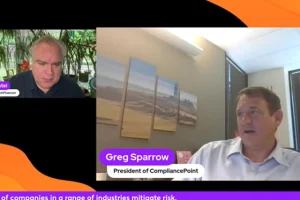Telemarketing Laws: Don’t Forget the States
There can be so much focus on the federal Telephone Consumer Protection Act (TCPA) and the Telemarketing Sales Rule (TSR) and related enforcement actions from the Federal Trade Commission (FTC) and Federal Communications Commission (FCC) that it can be easy to lose focus on state telemarketing requirements that are often more restrictive than the federal requirements. States can also be more active in enforcement than the FTC and FCC. Here is a high-level overview of the state laws and a look at the trends in enforcement at the state level.
State Requirements
Most, if not all, of these more restrictive state laws contain exemptions, but the purpose here is to provide a general overview.
Telemarketing Registration/Licensing
Thirty-four states plus the District of Columbia require telemarketers to obtain licensure prior to calling into or from those states. The requirements vary by state and may include bonding requirements. Some states, such as Florida and others, require individual agents to be registered. Many exemptions may apply to the state registration requirements. Most states require annual or even bi-annual renewals.
State DNC Lists
With Mississippi announcing a few months ago that it will no longer maintain its own state Do-Not-Call (DNC) list, the count is now at 11 states that allow consumers to place their numbers on these state-specific DNC lists, separate from the National DNC Registry. A new Connecticut law, set to take effect in a few days on October 1, doesn’t even allow calls to those not on a state or the national DNC list without express written consent or an applicable exemption.
More Restrictive State EBR Exemptions
When thinking of the timeframe for Established Business Relationship (EBR) exemptions to scrubbing against DNC lists, it can be easy to think there’s an across-the-board three months for an inquiry, eighteen months for past transaction, and that calls to current customers are exempt. However, this is not the case.
- Inquiry leads: California and Colorado only allow a 1-month exemption. Several other states require more than a general inquiry, such as an application for a product or service or express written consent.
- Past Transaction Leads: Some states lessen the timeframe to call past transaction leads to 12 or 6 months; others, such as Indiana, New Jersey, and Wisconsin do not allow calls at all based on a past-transaction EBR. These states also do not exempt calls to current customers.
Autodialers
Like the federal government, many states have long had strict autodialer laws, but none more so than the recently passed “mini-TCPA” laws in Oklahoma and Maryland (Florida got the ball rolling in this area but revised its language earlier this year to comport with the TCPA definition).
Calling Time Restrictions
Twenty or so states have more restrictive call time periods than the federally allowed 8AM to 9PM. These calling times are specific to the recipient’s local time and CompliancePoint always recommends basing calling rules on the consumer’s state of residence as opposed to area code. This is important with the mini-TCPA laws, too, as they apply to residents of the state regardless of area code.
Oral Disclosures
Some states require telemarketers to disclose information beyond the federally required 1) name of caller and business, 2) purpose of call is to sell, 3) nature of goods/services offered, and 4) real phone number or address. For example, some states require telemarketers to ask for “permission to continue” the call after their introduction, while others require an immediate disconnect without a rebuttal if the consumer indicates they do not wish to continue the call. We’ve also seen New York and Connecticut require telemarketers to disclose the consumer’s right to be added to the company-specific DNC list.
State Enforcement Trends
Enforcement of state laws is generally initiated by state Attorneys General (AGs) offices. The state AG’s office will likely initiate an investigation of a business after as little as a single consumer complaint. State AG websites make it very easy for consumers to file complaints.
State AGs can partner with federal agencies as we’ve seen with the recent “Operation Stop Scam Calls” initiative or they may initiate enforcement actions without involving the feds. For example, in May of this year, a coalition of 48 states (Alaska and South Dakota did not join) and the District of Columbia sued a Voice over Internet Protocol provider for allegedly sending or transmitting more than 7.5 billion calls to numbers on the national DNC registry.
The general focus of state AGs, presumably based on consumer complaints of receiving unwanted calls, has been to go after illegal robocalls and even lead generators in some instances. It’s also clear that at least some states intend to make it more costly for violating laws. New York Governor Kathy Hochul just this month signed legislation that nearly doubles the maximum fine for violators of the DNC Registry from $11,000 to $20,000.
So, while we do not see enforcement around all or many of the state requirements outlined above, we advise our clients to be diligent in maintaining a compliant posture with all requirements, as they do not want to become the “test case.”
To learn more about the latest state telemarketing laws and the risks they present, listen to this episode of the Compliance Pointers podcast.
CompliancePoint has the team and services to bring your marketing campaigns into compliance with all applicable regulations, including the TCPA, TSR, Do Not Call lists, and all state telemarketing laws. Contact us at connect@compliancepoint.com to learn more about how we can help.
Finding a credible expert with the appropriate background, expertise, and credentials can be difficult. CompliancePoint is here to help.





